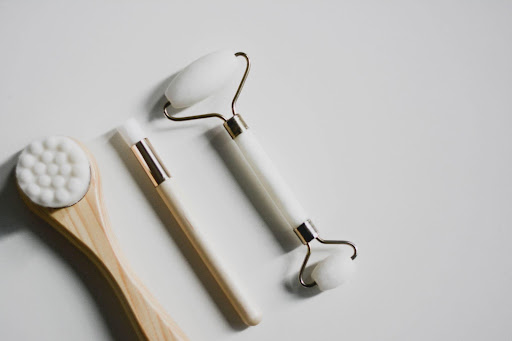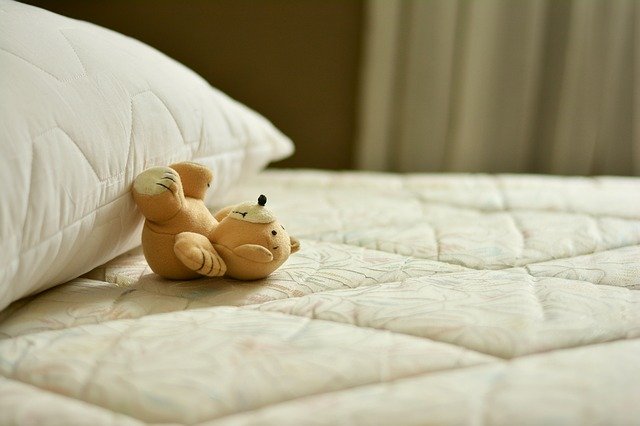8 Tips to A Better Night’s Sleep

A good night’s sleep is important for us to tackle our busy lives each and every day. Without proper sleep, you are bound to feel groggy and find it hard to focus on work or other tasks. You will become more irritable and easily stressed when problems or issues arise. Being less alert is also common for those not getting enough quality sleep, which can be dangerous when you are driving, working, or doing anything that requires faster reflexes and your full attention.
Thankfully, there are many ways you can achieve a better night’s sleep every single night. There are ways you can ensure quality sleep so that your mind and body get the rest they both need. Read on for incredibly helpful tips for a better night’s sleep!
Sleep on a schedule
You may not realize this, but following a schedule every night promotes better quality sleep. Our bodies need to be trained to fall asleep and wake up at the same time. Training your body in this way also ensures you get the amount of sleep you need to take on every day.
A sample schedule would be to go to bed at 10pm and wake at 6am for 8 hours of sleep. Sticking to this schedule for just a few days in a row should start to show you how much more rested you can feel. The best part is that doing this consistently creates a habit.
After a while, you’ll automatically start feeling tired when it’s close to bedtime and waking up naturally at the time you’d normally set an alarm for.
Increase your physical activity
Exercising every day allows you to burn energy that may otherwise still be pent up in your body at bedtime. The best way to combat this is to be more active throughout the day. Incorporate some activity in your schedule where you can, such as hitting the gym early in the morning or taking a walk at lunch.
For the most effective results, try not to exercise too late in the day, as your body may still be energized and wired at bedtime if you wait until later.
Throw out the naps
It can be difficult to stay awake and alert all day when you aren’t getting good sleep at night. You may think that the obvious solution is to take a power nap or two during the day. However, napping often creates a vicious cycle of not being able to sleep at night, making you more tired and wanting to nap the next day. This can also cause your naps to become increasingly longer.
Break free from this detrimental cycle by avoiding naps, especially in the late afternoon. It may take a few days, but you’ll see that you are sleeping better at night since you aren’t teasing your body with mediocre extra rest during the day.
Stay away from caffeine
Caffeine is a stimulant that our bodies use for more focus and energy. Because of this, it’s best to avoid drinking any caffeine for several hours before bedtime. Scientific studies have shown that the effects of caffeine can last in the body up to 6 hours after drinking it. So, if you have a 10pm bedtime you want to make sure you don’t have any coffee or soft drinks after 3-4pm every day.
Substitute soft drinks and energy drinks for sparkling water later into the day. If you crave the flavor of coffee in the evening time, try your favorite drinks with a switch to decaf.
Disconnect long before bed
To help yourself relax and get ready for sleep, it’s vital that you unplug from any tech devices at least one hour before bedtime. Turn off the TV, lock your phone, and shut down your computer for the evening. Don’t be tempted to just watch a few YouTube videos before bed. This can keep your brain alert and wired, making it difficult to rest.
In the worst case scenario, if it’s not entirely possible for you to disconnect, invest in some blue light screen protectors, or blue light glasses. These counteract the blue light that LED screens emmit that stimulate your brain. This will help you wind down, even while using most devices.
Develop a helpful bedtime routine
It helps to be relaxed and ready to sleep as soon as your head hits the pillow. Help create this by following a relaxing bedtime routine. Take a bubble bath, listen to relaxing music, pamper yourself with scented lotions, or practice aromatherapy in the bedroom.
Relaxing is different for everyone. If you find your calm by drawing, writing, reading, skincare, or anything else, that’s awesome, too! All of these things will calm your senses and all your body to feel calm and at peace as you place your head on the pillow to sleep at night.
Avoid heavy eating before bed
Consuming a large meal too close to bedtime can definitely have an affect on how well you sleep. It can hinder the natural production of melatonin on your body, which is a hormone your body produces that is necessary to feel tired and ready to sleep.
It is okay to have a light snack about an hour before bed. Choose protein and low carbs, if possible, as that will be more filling and keep you satisfied through the night.
Create a relaxing environment
You are more likely to get quality sleep every night in a bedroom that lets you relax and be comfortable. Keep the temperature at a level that feels good under your covers. Make sure your room is clean so you’re not worried about waking up to a mess in the morning.
Sleep in loose cotton pajamas to avoid getting overheated and waking up sweating during the night. Play soft music or a white noise machine with a timer to help you get to sleep soon after your head hits the pillow.
The goal is to fall asleep within 15 minutes of laying down for the best sleep – if you toss, turn, or lay awake too long, it will be hard for your body to relax and get the sleep it needs.
Getting a good night’s sleep is essential for your mind and body. Your mood, productivity, and stress levels will also thank you when you are sleeping enough every night. If you have a great tip for a better night’s sleep, let us know in the comments!





